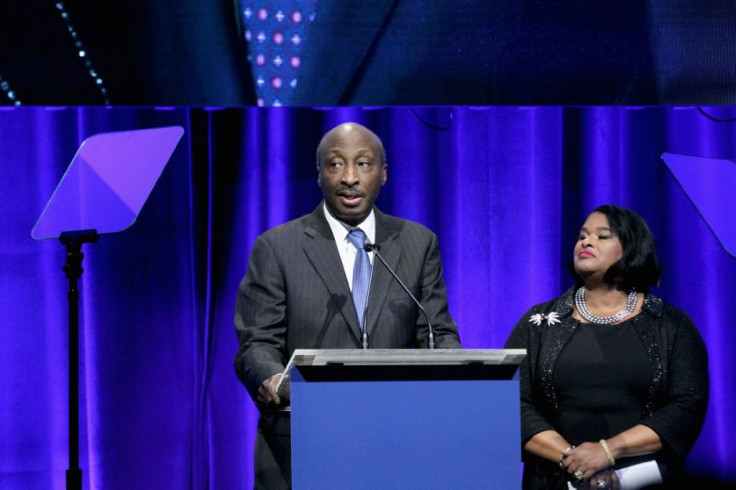More Than Words? Racial Unrest Raises Questions For Corporate America
As the US grapples with an escalating racial justice crisis on top of a public health emergency, Corporate America faces calls to go beyond reassuring PR touting diversity.
Companies need to do more than simply decry racism to meet the moment, said Merck Chief Executive Ken Frazier.
"People put out statements, they put out platitudes, they say this is terrible," Frazier said this week on CNBC.
"The fundamental question is do we do more than we're required to give people full means to participate in this society."
Mass protests in the wake of a police killing on an unnamed black man have thrust US racial inequity to the forefront at the same time the country is dealing with the coronavirus.
Many large companies have put out statements decrying discrimination and some, including Apple and Bank of America, have put some money behind the effort by supporting civil rights advocacy groups or programs targeting disadvantaged populations.
Yet the longtime record points to deep inequity in American society and throughout its companies.
A 2019 report by Boston Consulting Group noted that only three of the 500 biggest US companies by revenue were led by African-Americans and just 24 by women.
In 2018, the average income for a white household in the US was $70,642, compared with $41,692 for African American families, according to data from the Economic Policy Institute, a progressive think tank.
Frazier, the only black CEO of a Dow Jones index company, credits his success to an education initiative that bussed a handful of black students from inner-city Philadelphia to the city's top schools.
Hiring and promoting African Americans and Latinos is essential to addressing inequity, and companies should not expect Washington to lead the way, he said.
"Our society is more divided than it's ever been," Frazier said.

"We live in our own separate camps and enclaves. You could actually argue that the workplace is the last place in America besides military and maybe sports where people can't choose who they associate with. So we as business leaders can step up and solve many of these economic problems for people."
Marketing experts see rewards for companies that meet the moment.
"Business has the opportunity to step into the void left by government," said Richard Edelman, head of the Edelman communications firm.
"It has to not just be about communication, it has to be about action," said Edelman, who pointed to examples of major companies supporting minority-owned contractors or hiring people who were once incarcerated.
Other concrete steps can include supporting startups created by African Americans and Latinos and having senior executives serve on boards advising community groups and non government organizations that serve disadvantaged communities, said Edelman.
Edelman noted that many of the protesters are younger consumers who are weighing how different companies response to the crisis.
Experts urge corporations to take a page from the National Football League's "Rooney Rule," which requires teams to interview non-white candidates for coaching and senior football operation jobs when openings arise.
"There are a lot of companies out there that want to do window dressing," said Hank Boyd, a professor of marketing at the University of Maryland. "You need to be acting, you need to be moving quickly."
"There was a time where a lot of companies said they want to be above the fray, 'let's not get involved, we're Switzerland,' Boyd said. "You don't have that luxury anymore. Brands today have to take a position."





















